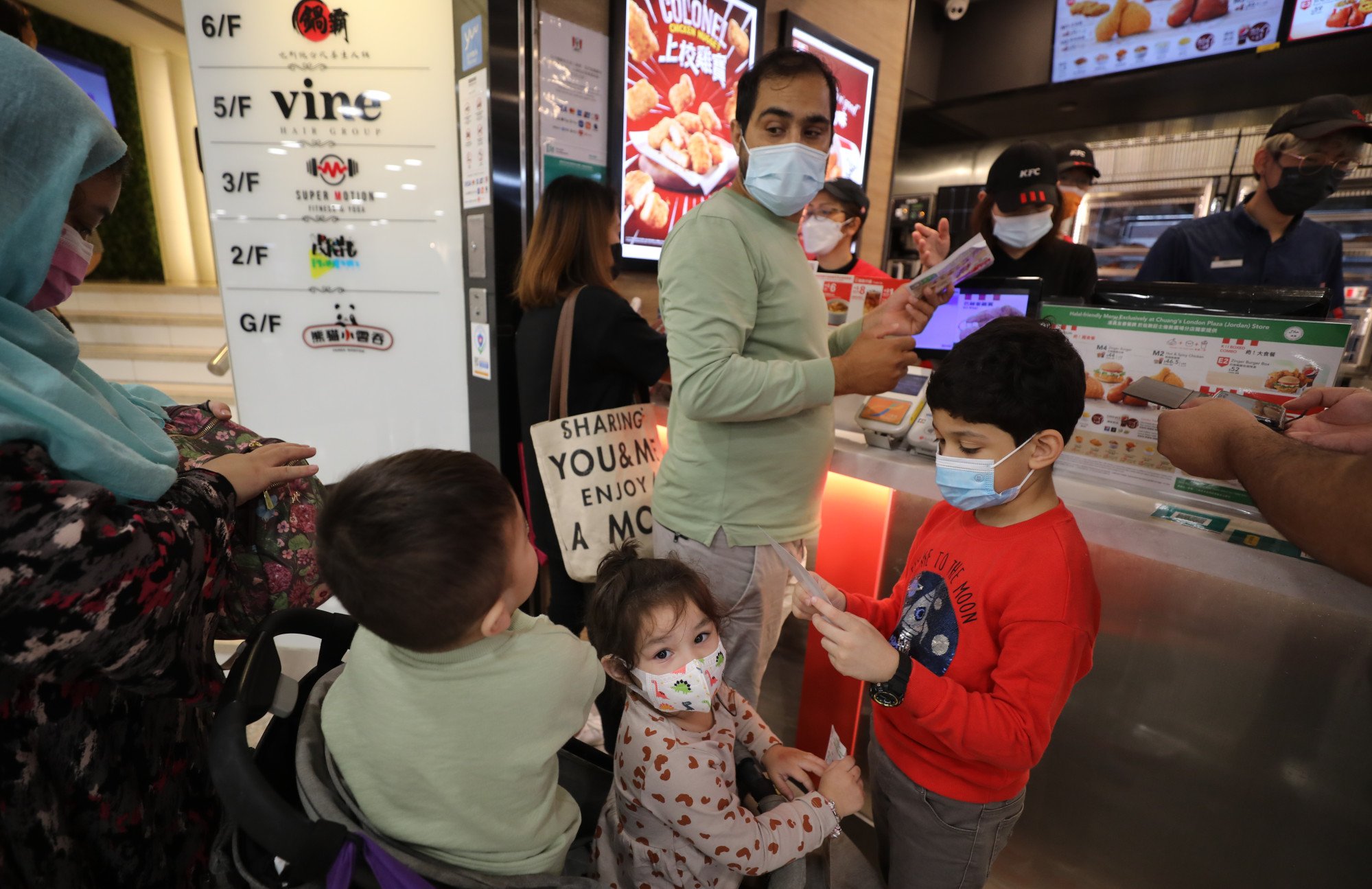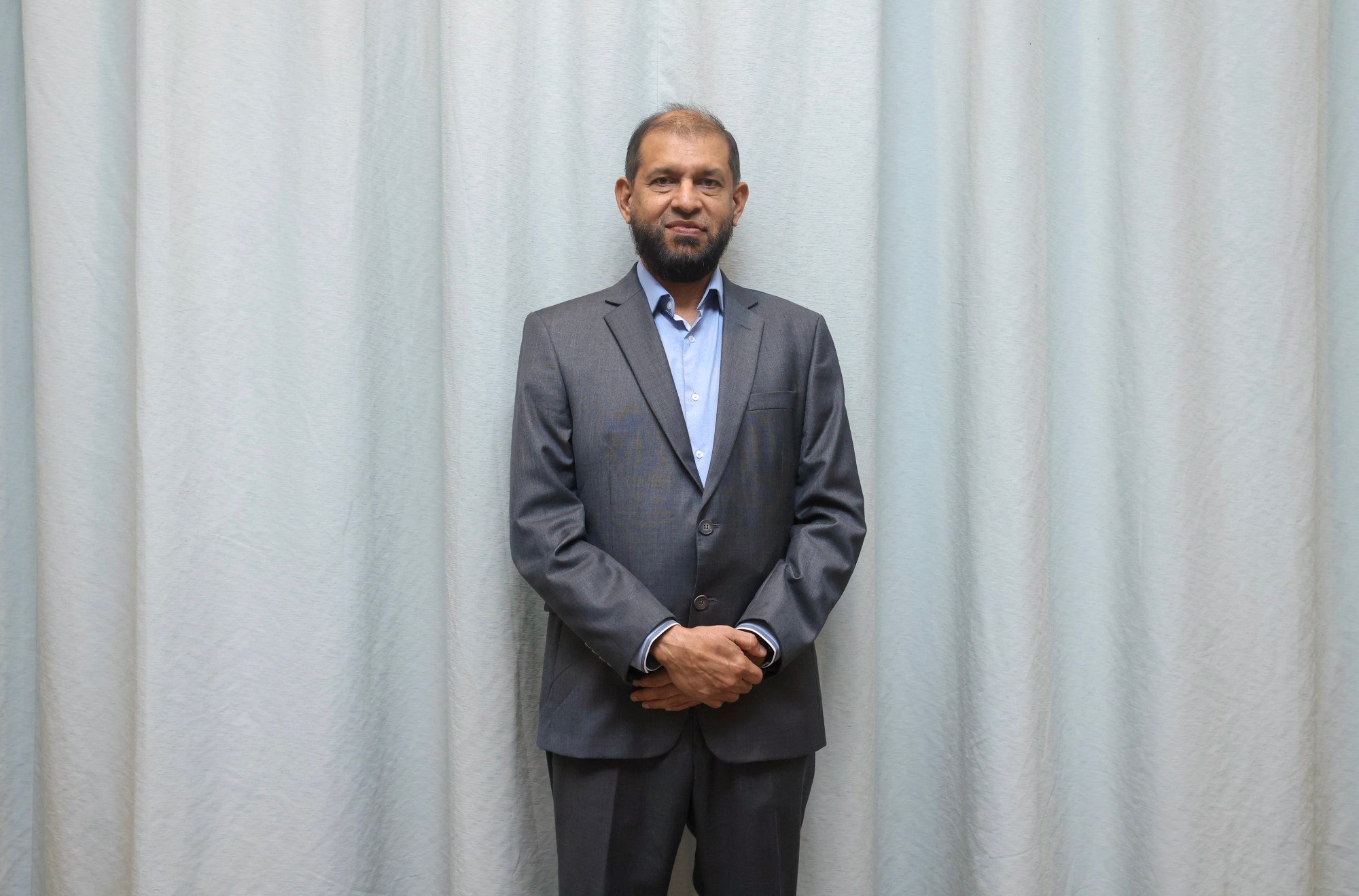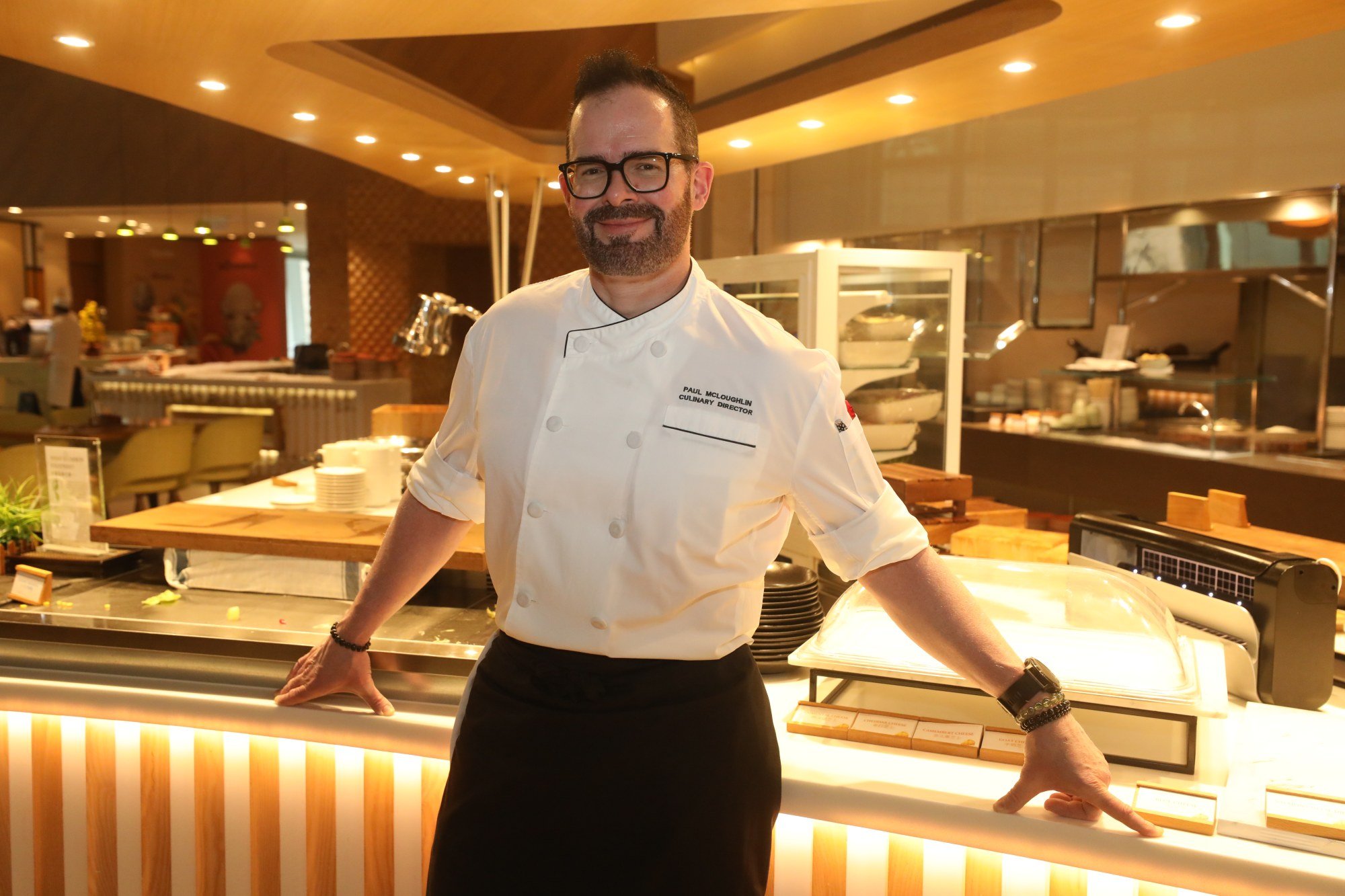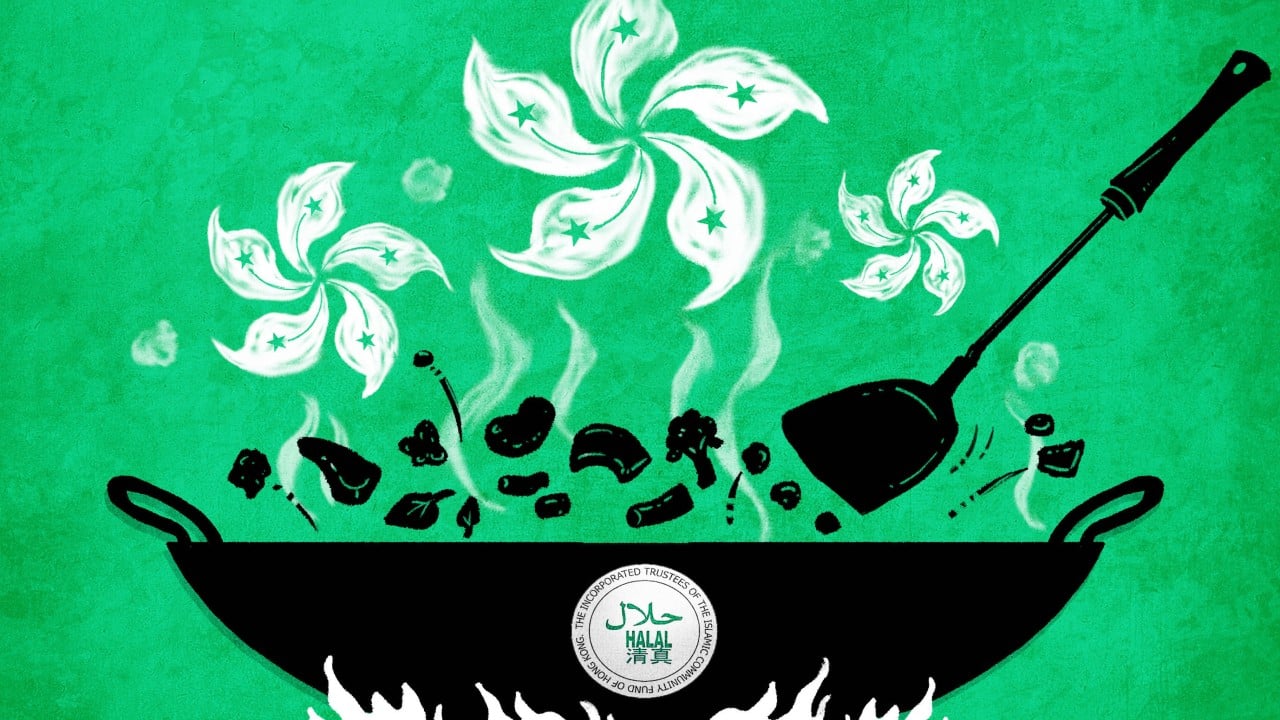Can Hong Kong be more Muslim-friendly? Having more ‘halal’ dining options can help attract Middle East visitors
Hong Kong foodie Maryam Khan went from 2,000 followers to 18,100 on her Instagram page in under two years, sharing pictures and videos of what she enjoyed eating in and around the city.
From hamburgers, kebabs and French fries to dim sum, hotpot and fried rice, the videos on her @foodie_explorerz page showcase all that is halal.
An Indian Muslim who grew up in Hong Kong, she has gained a following helping other Muslims navigate the city’s massive food scene.
“I love having Middle Eastern food – shawarmas in particular – and my other favourite is Chinese food, which includes dumplings and noodles,” said the full-time social media manager, who is in her twenties.
But while Muslims had more choices compared with a decade ago, the city still had some way to go to be considered truly halal-friendly, especially in terms of variety and Chinese food offerings, she said.
“Spots like cha chaan teng and dai pai dong offering halal options would level up the dining experience,” she said, referring to the city’s local diners and open-air restaurants.
“Imagine fully enjoying Hong Kong’s lively food scene, including its famous street food, while staying true to your dietary preferences. It would be a game-changer.”
The city’s Muslim community of around 300,000 makes up about 4 per cent of the population, but Hong Kong is eager to attract more Muslim visitors, especially from the Middle East, and that is where the lack of halal options has become an issue.
Will such visitors come, if it is too hard to find food they can eat?

The halal dietary code spells out what Muslims can and cannot eat, how food should be prepared, and how animals such as chickens, cattle and sheep are slaughtered for meat. Pork and alcohol are considered “haram”, or forbidden.
Halal food must be prepared separately to prevent cross-contamination, and all cooking equipment and utensils should be washed by either Muslim staff or trained personnel.
Tourism Board executive director Dane Cheng Ting-yat acknowledged that food was a major concern for Middle Eastern travellers, who are overwhelmingly Muslim, and that it was one of Hong Kong’s biggest challenges in attempting to tap into the market.
The board found only 105 eateries across the city, including at the airport, theme parks and within hotels, were considered halal-certified food premises, a mere 0.8 per cent of about 13,000 licensed or permitted premises under the Food and Environmental Hygiene Department.
Most are fast food outlets selling pizzas and kebabs. The list has only two considered Chinese – a vegetarian restaurant on the University of Hong Kong campus and the Islamic Centre Canteen in Wan Chai that serves halal dim sum.
Hong Kong may design new halal certification system as part of Mideast outreach
Hong Kong may design new halal certification system as part of Mideast outreach
More halal dim sum choices?
Wooing Middle Eastern visitors is on Hong Kong’s tourism agenda this year and Cheng called it a major focus for the board.
Secretary for Culture, Sports and Tourism Kevin Yeung Yun-hung told the Legislative Council that the board would set up an office in Dubai and distribute free air tickets in the region to bring travellers to Hong Kong.
The agenda corresponds with Hong Kong’s aggressive charm offensive in the Middle East to boost economic ties, which saw Chief Executive John Lee Ka-chiu leading a 30-strong delegation on a week-long work trip to the region in February last year, and is in line with Beijing’s Belt and Road Initiative to create a China-centred trade network covering more than 100 countries.
Hong Kong drew only 16,436 visitors last year from the Gulf Cooperation Council, which includes Bahrain, Kuwait, Oman, Qatar, Saudi Arabia and the United Arab Emirates. That represented 0.05 per cent of total visitors.
By comparison, Singapore had 109,551 visitors from Kuwait, Saudi Arabia and the United Arab Emirates last year. Official data specifically for visitors from Bahrain, Oman and Qatar were not available.
Hong Kong also ranked 30th out of 138 destinations in the Global Muslim Travel Index 2023 put out by Mastercard and CrescentRating, a Singapore-based research and consultancy firm focused on the Muslim travel market.
That put the city behind Singapore at 11th, Taiwan at 28th and Thailand at 29th.

Tourism Board adviser Fazal Bahardeen, CrescentRating’s chief executive officer, is convinced that with some effort, Hong Kong can become more attractive to Middle Eastern and Muslim visitors.
He said more Hong Kong eateries could be added to the halal list if the owners made some adjustments.
The Incorporated Trustees of the Islamic Community Fund of Hong Kong currently handles halal certification system for restaurants, and it has three categories.
Aside from fully halal restaurants, it certifies those which have separate halal kitchens but also serve haram food and alcohol in the dining area, and “halal-friendly” eateries that prepare halal and haram meals in the same kitchen, but implement strict measures to avoid contamination.
The board is planning a publicity campaign next year to encourage more businesses to become certified in at least one category.
It said many restaurants might already qualify without knowing, or possibly only needed to make minor adjustments to become certified.
“It’s about raising awareness,” Fazal said. “It’s about identifying restaurants that we can tell, ‘Look, your current set-up is eligible for a certification … so get one.’”
For example, he said, a vegetarian restaurant that did not use alcohol in its food could easily get a certificate.
Muslims cheer KFC’s halal move, hope they’ll have more food choices in Hong Kong
Muslims cheer KFC’s halal move, hope they’ll have more food choices in Hong Kong
That would be the first step, before moving on to encourage other industry players to make bigger commitments.
“Let’s say you have a restaurant that does not serve pork. It’s very easy to convert it into a restaurant that caters to not only their existing clients, but also Muslim customers,” he said.
If the restaurant switched to buying its meat from a halal supplier, there would be no need for a separate halal kitchen.
Pointing out that travellers usually wanted to try the local cuisine, Fazal wished Muslim visitors could enjoy some halal Cantonese food.
“We need to identify some Chinese restaurants, I think that’s the key thing. Real Chinese restaurants. Dim sum,” he said.
Beyond that, the city needed halal fine dining restaurants too, for the type of visitors attending events in the meetings, incentives, conferences and exhibitions (MICE) tourism space.
He concluded the key to sparking change was education, first for the industry.
“Once they understand it’s not rocket science to cater to the Muslim market, the next thing is to help them develop the capacity and capabilities,” he said.
He said a “top-down” and gradual approach led by the government would be most effective, as restaurants were unlikely to take the plunge unless they saw real potential in the market.

Hong Kong also needed to take the initiative to promote its readiness for Muslim visitors, especially younger “Gen Z” Muslims in their twenties who were “not afraid to show their Muslim identity”.
The city’s chief imam, Mufti Muhammad Arshad, said the community welcomed moves to increase the number of halal food establishments, as the city’s own Muslim population would benefit too.
He hoped the efforts would rekindle discussions with fast food chains such as McDonald’s and Pizza Hut to become halal certified, because they were everywhere, easily accessible and delivered to homes.
Calls for major fast food chains to cater to the halal market go back at least a decade but it was not until November 2022 that a Tsim Sha Tsui Kentucky Fried Chicken branch near the Kowloon Mosque became the first to get certified. Thirteen more locations have gone halal since.
“Transitioning to a halal-friendly menu presented both opportunities and challenges. The education of our team members and suppliers on halal-friendly standards was key to ensuring a successful roll-out,” Wesley Zhai, General Manager of KFC Hong Kong and Macau, told the Post.
Instagram foodie Maryam Khan recalled: “When KFC finally introduced halal options in a few branches, our community felt a sense of validation and inclusivity.
“It was truly remarkable. Many Muslims were extremely excited about the news, including myself.”
The chief imam also pointed out that providing more food options was not the only consideration if Hong Kong wanted to attract Muslim visitors.
He said the city would have to meet their other needs, by providing more prayer facilities for Muslims who prayed five times a day and setting up counters at the airport that catered to the community.
Halal dim sum? Trade fair aims to boost Hong Kong’s appeal to Muslims
Halal dim sum? Trade fair aims to boost Hong Kong’s appeal to Muslims
‘Too costly to set up halal restaurants’
Fazal suggested it might be easier for hotels, rather than restaurants, to do more to cater to Muslim visitors as many hotels had multiple kitchens and could convert one to a halal space.
Of the city’s about 300 hotels, the Tourism Board website lists 26 as “Muslim-friendly” though only 15 are actually halal certified, or have at least one halal restaurant.
Those that do not, such as the Cordis in Mong Kok, rely on alternative solutions such as outside caterers to satisfy their Muslim guests’ needs.
“We can produce menus for them online or in paper form for them to choose, and then we will source it for them for lunch or dinner,” said Paul Mcloughlin, the hotel’s culinary director.
He said the guests were always told that the meals were not produced on-site.
“We have to be transparent to the guests. There’s no playing around with this,” he said.
The biggest obstacle in going halal, he added, was the lack of space for additional facilities, and this was the issue many of his peers faced too.
“Money can solve everything except for this, because there is no space,” he said.

With only about four individual halal requests a month and 10 banquets a year, current demand also did not justify the massive overhaul needed to reconfigure kitchen operations.
“I don’t see a big influx coming in the near future,” he added.
That sentiment was shared by Association of Restaurant Managers’ spokesman Jonathan Leung Chun, who also runs the Seafood Delight Group of restaurants.
He was doubtful that Muslim visitors would be happy to eat in restaurants that had anything less than full halal certification.
“Let’s say we begin offering some menu items that are halal in an existing restaurant. Would they trust us to not cross-contaminate? Would they really come? This is a very complicated issue,” he said.
“For me, the only sure-fire way would be to open more restaurants that are purely halal.”
But in the current economic circumstances and given the challenges facing the industry, including Hongkongers flocking to mainland China during holidays, manpower issues and high rent, he doubted that restaurant owners would be prepared to invest in new halal establishments.
Besides, he added, there was little to boost confidence.
“There are quite a few halal restaurants in Hong Kong now, and it’s not like they’re overflowing with people,” he said. “The economics of the market are very simple, if there is demand, the industry will naturally react with supply.”
To break the deadlock, Sharifa Leung, founder of food products supply and consultancy business Hani Halal, suggested a more organic approach that catered first to those at home.
The Hongkonger connecting strangers in Dubai, one halal Chinese dumpling at a time
The Hongkonger connecting strangers in Dubai, one halal Chinese dumpling at a time
Before trying to attract Middle Eastern visitors, the city ought to do a better job of meeting the needs of its own Muslim community and those already visiting from Malaysia and Indonesia, she said.
The third-generation Muslim Hongkonger said Taiwan, with 60,000 Muslim residents who made up only 0.3 per cent of the population, had succeeded in attracting visitors because of the way it had engaged with its own local community.
She said Taiwan began promoting Muslim culture about a decade ago, adding Muslim-friendly facilities and hosting halal events and celebrations for major holidays such as the fasting month of Ramadan and Eid.
The number of visitors to Taiwan from Indonesia and Malaysia rose steadily between 2010 and 2019, before the Covid-19 pandemic, with the number of Malaysians climbing from 285,734 to 537,692 and the number of Indonesians incresaing from 123,834 to 229,960. The visitors from both countries included non-Muslims.
Taiwan now consistently ranks among the top three Non-Organisation of Islamic Cooperation travel destinations for Muslims according to CresentRating, and has also launched a “Salam Taiwan” tourism campaign targeting Muslims from nearby countries such as Malaysia and Indonesia.
Pointing out how Taiwan’s approach differed from Hong Kong’s, she said: “They initiated these things because they were keen to embrace and celebrate with their own Muslim population.
“We tend to be an economically driven city, whereas Taiwan is more culturally driven.”


